CamReach
SaaS platform design — AI-driven sales platform that helps small to medium-sized businesses discover and reach out to high-value and niche prospects.
Role
UX/UI Designer
Project Type
SaaS Product
Team
Sole Designer - Team of 4
Timeframe
2 Months | 2025
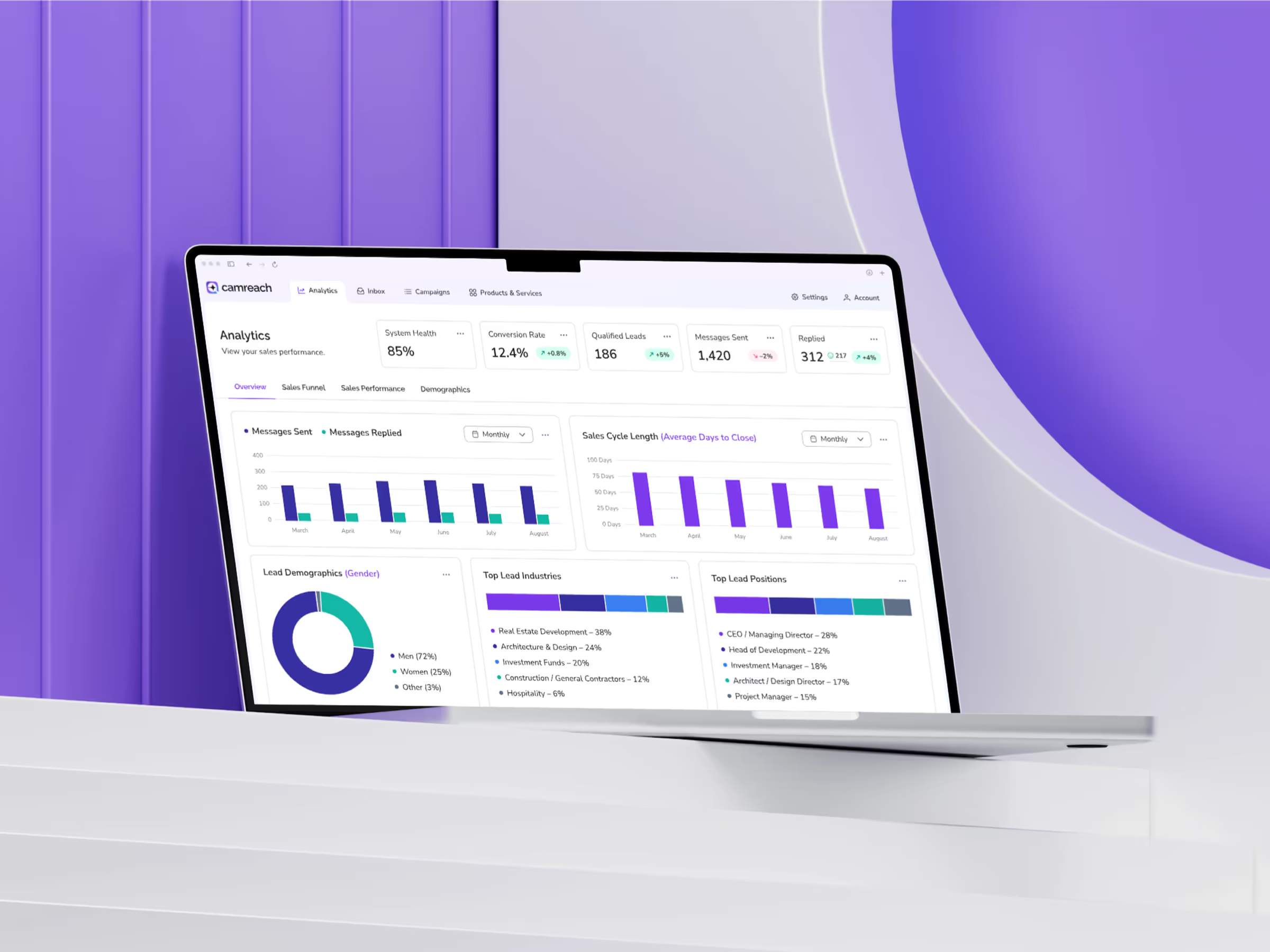
Project context
CamReach was initially an in-house tool for sales, which we decided to build into a fully fledged SaaS platform due to it’s success. We started first with an MVP to begin testing and secure further funding.
My role
I defined the product’s structure and user experience, conducted research, and designed the interface, from initial flows to a polished Figma prototype and design system. I worked closely with stakeholders and developers throughout the process.
The problem
Small and mid-sized businesses struggle to find niche or high-value prospects. Existing solutions have a steep learning curve, complex workflows, and offer little customization.
Goals
Our goal was to design a clear, intuitive flow for defining target audiences, setting up campaigns, and trusting automated outreach. The MVP needed to validate the product vision, reduce friction in core tasks, and show how tailored AI-powered prospecting can meaningfully support small business sales efforts.
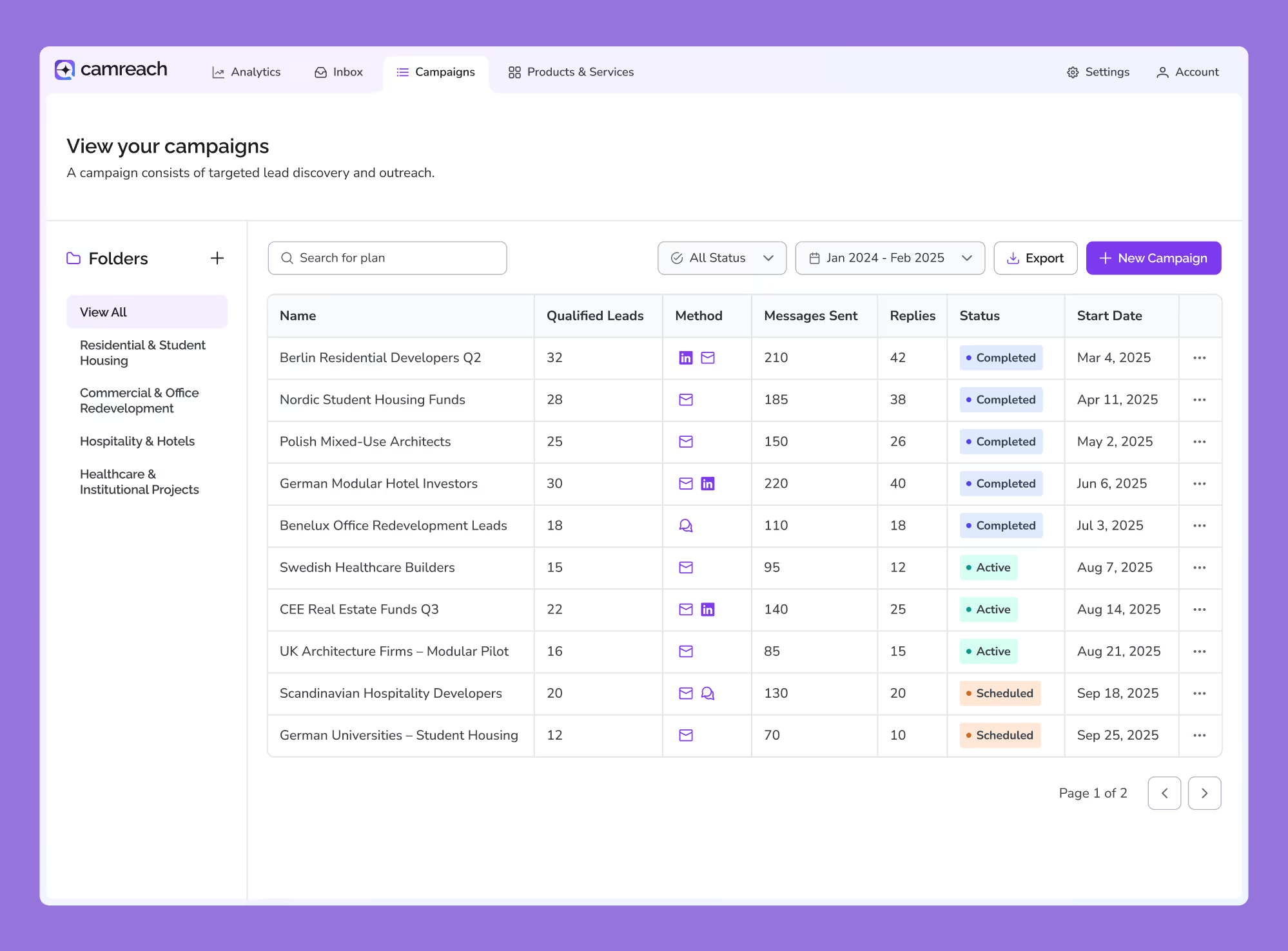
Initial stakeholder interview
The objective was to clarify the product vision, business goals, expectations, and restrictions.
Business goals and pain points
The initial priority was to create a successful MVP to help secure funding to further build the platform and to land 1-3 clients as part of a testing phase.
Findings
Our early in-house version of the tool was a key reference in providing product insights. Securing funding is critical.
Lack of in-depth research and analysis
Campaign creation flow is critical
Visuals must be polished for MVP
Constraints: 1 month deadline to complete
Emergent goals
Clearly establish key user pain-points and needs. Conduct a competitive analysis. Establish the information architecture and core user flows. Design the interface in Figma and build a prototype to test.
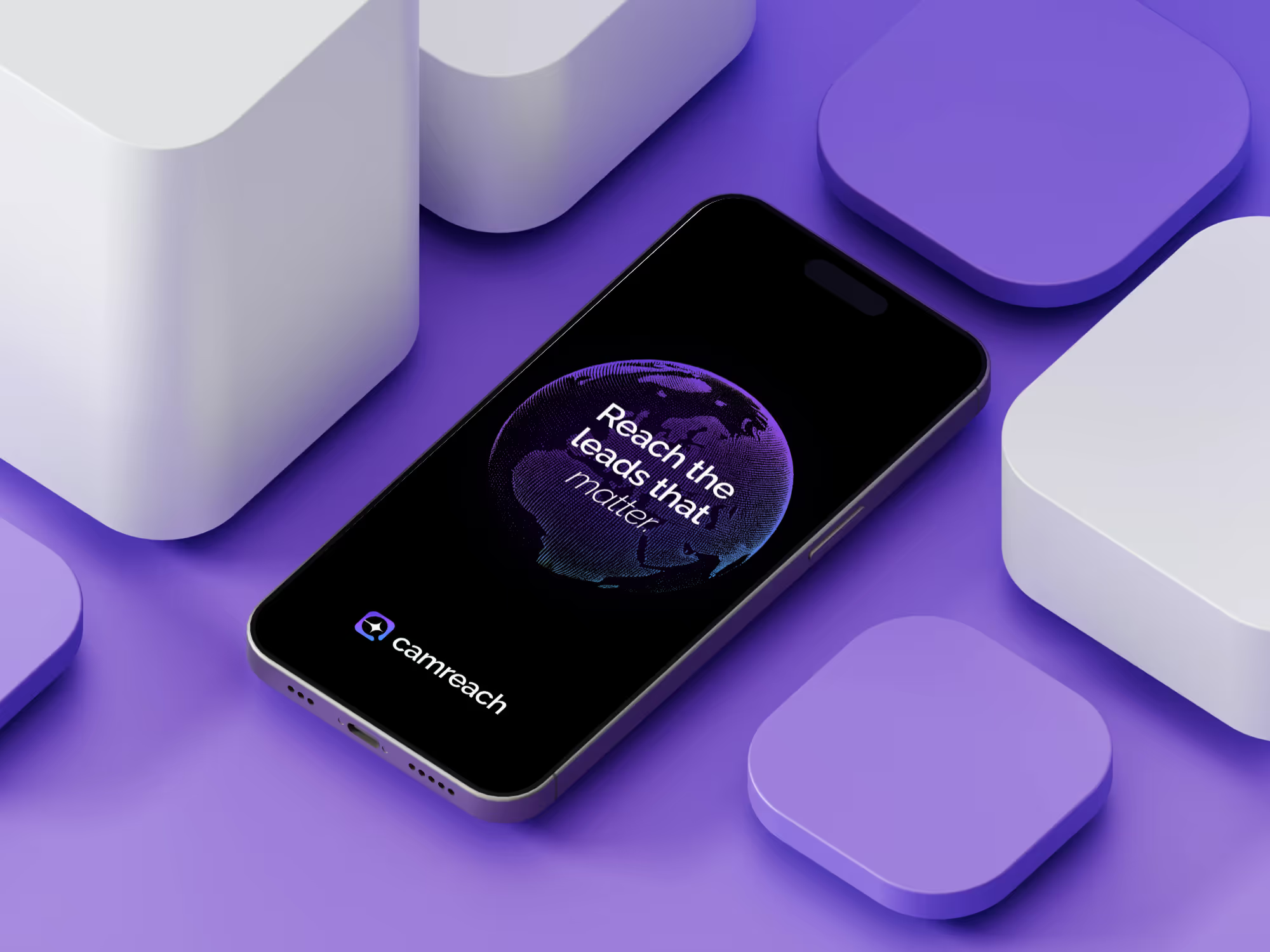
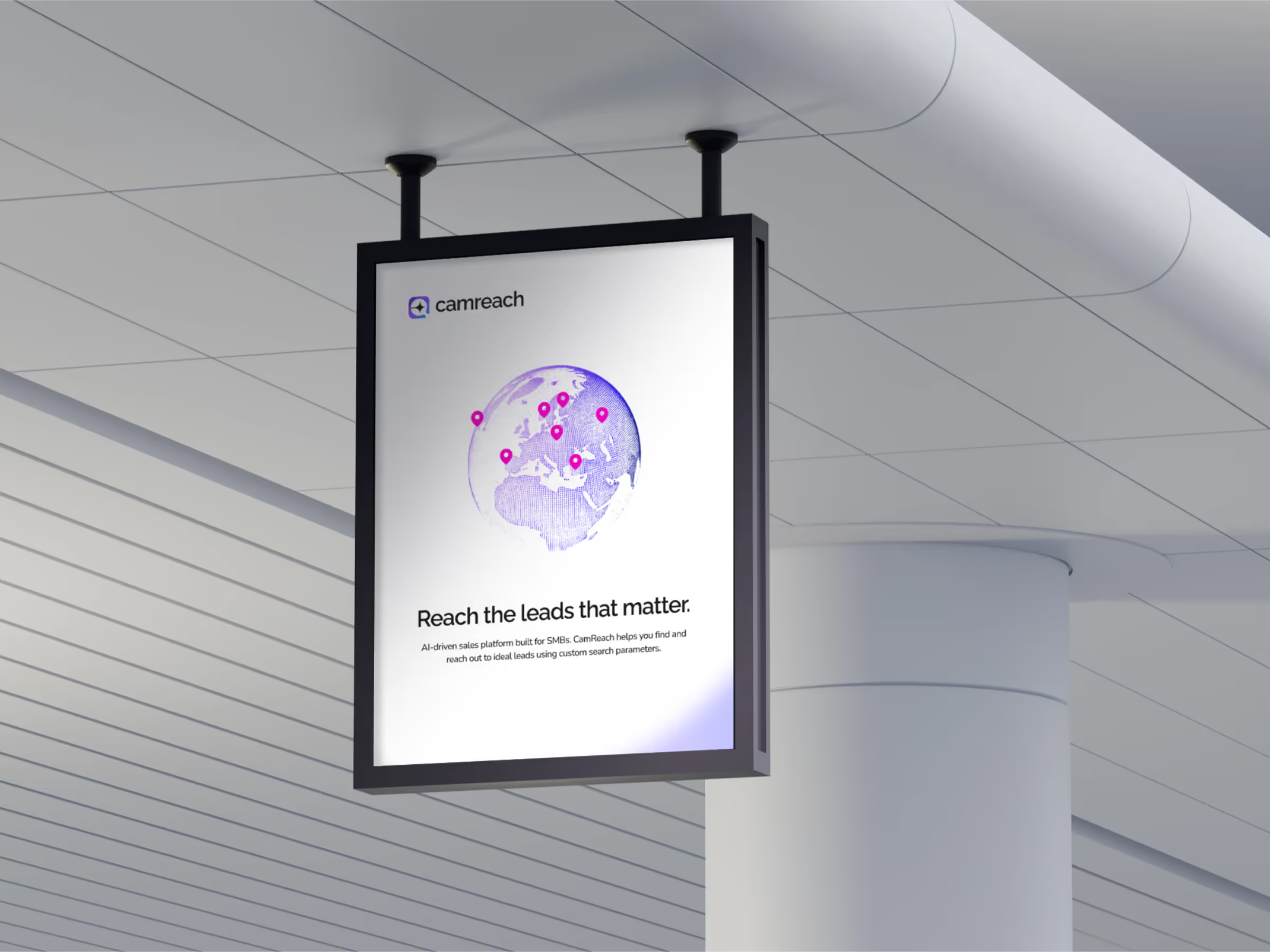
User pain-points
Our target users are individuals working at small to medium-sized businesses. These are not sales people, and have other important tasks at the company.
Limited time and resources
Limited sales knowledge
Difficulty in finding target customers
Existing sales platforms have a learning curve and are not effective at finding niche prospects
Their needs
Our target users require an all-in-one platform to handle their sales process that addresses the following points:
Automated discovery and outreach + custom search parameters for their industry and needs
User-friendly and intuitive sales management
Quickly launch and manage campaigns
Clear and effective overview of sales process
Competitive Analysis
I reviewed tools like Apollo.io, Lemlist, and Instantly to understand how existing platforms support prospecting and outreach.
They prioritize scale over precision, making niche prospecting difficult.
Onboarding and search setup are often too complex for non-technical users.
Automation steps can feel opaque, reducing trust in AI-driven decisions.
There is a gap for a lightweight, customizable tool built specifically for SMB needs.
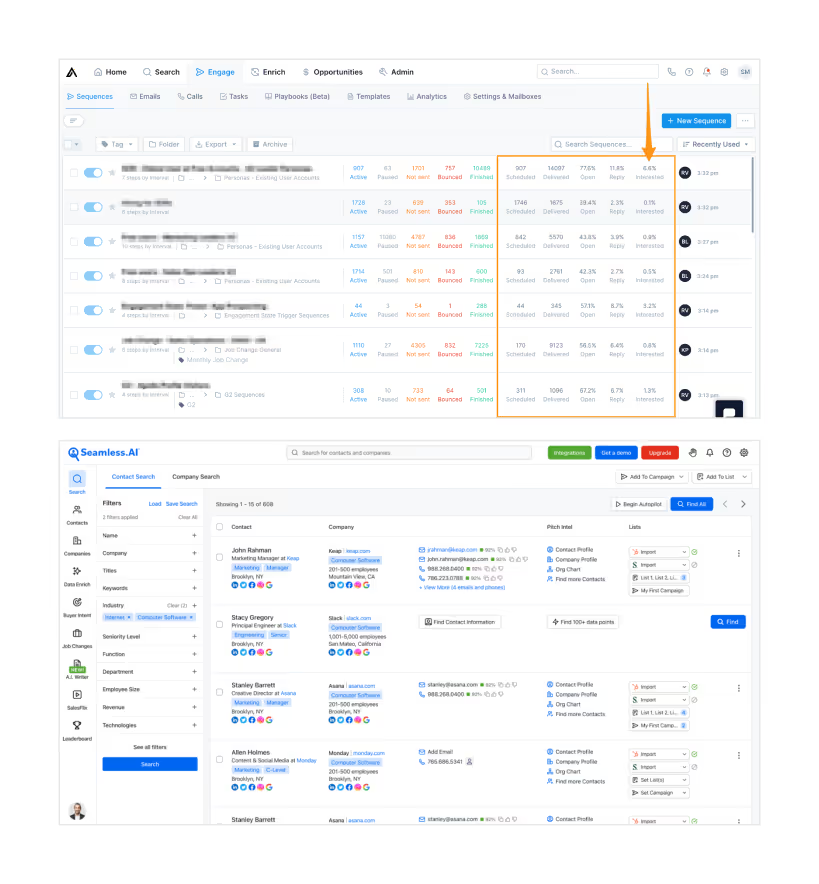
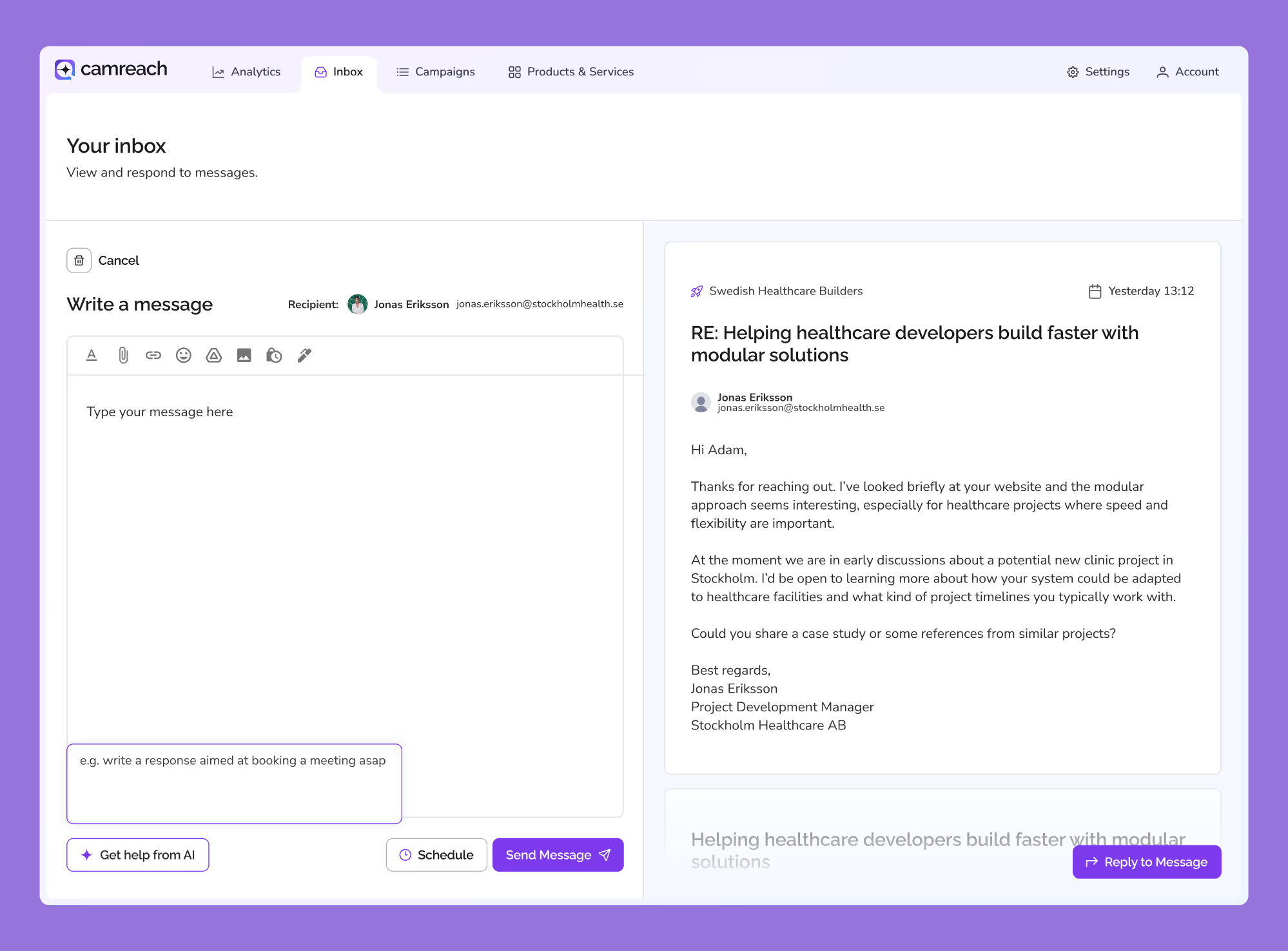
Niche prospecting using custom parameters
The core function of our product is in aiding users to find niche and high-value prospects that otherwise would be very hard and time consuming. We achieve this via custom search parameters which are manually adjusted for each customer, taking into account their unique needs, industry, and target customers.
Findings → product features
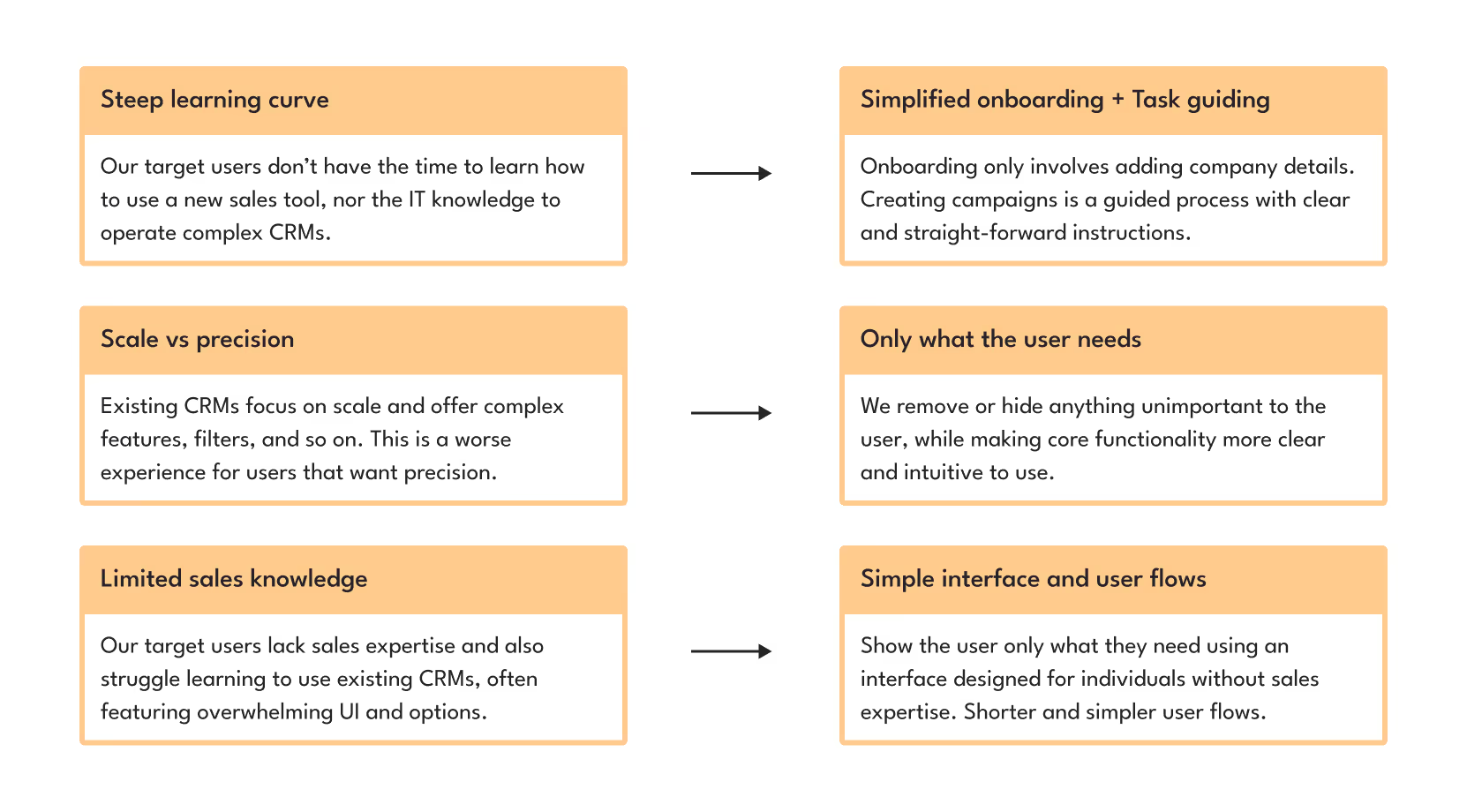
Information Architecture
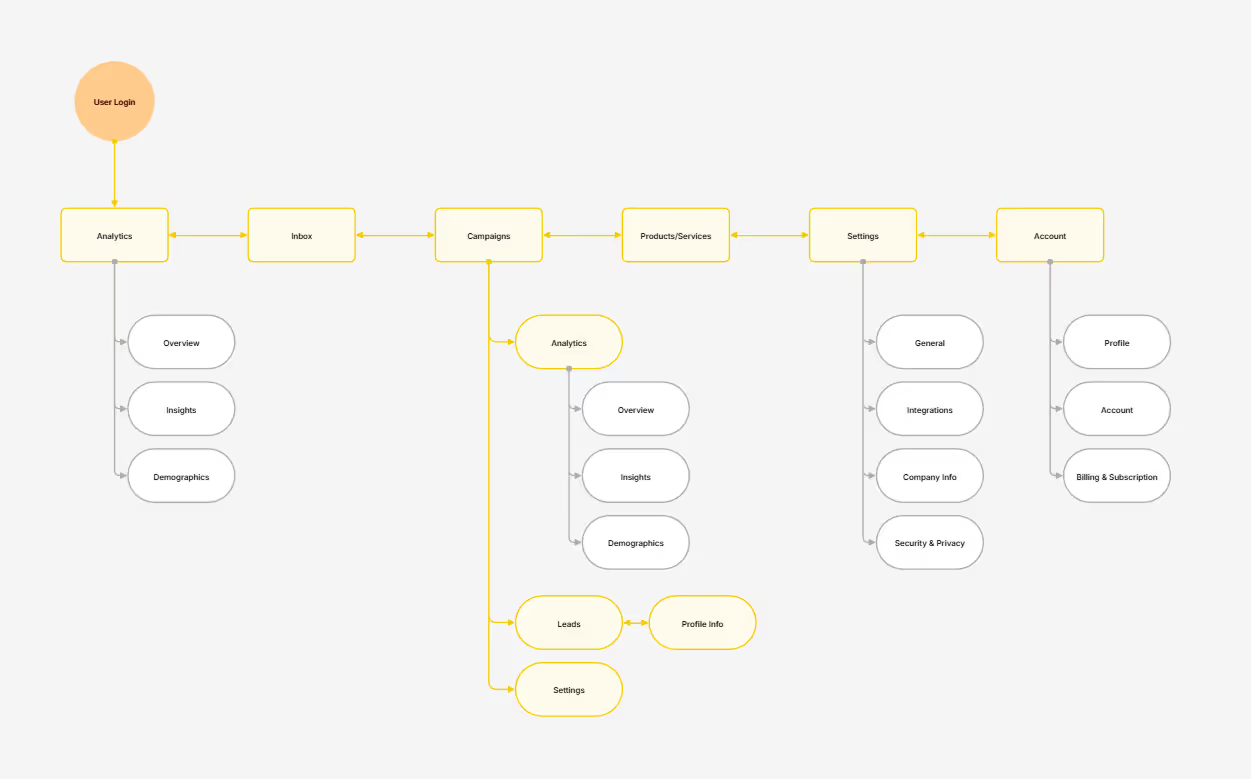
Sketches & ideation
I began sketching ideas for designs and flows which would address my findings. Campaign creation was the most critical part of the product and what I focused on most.
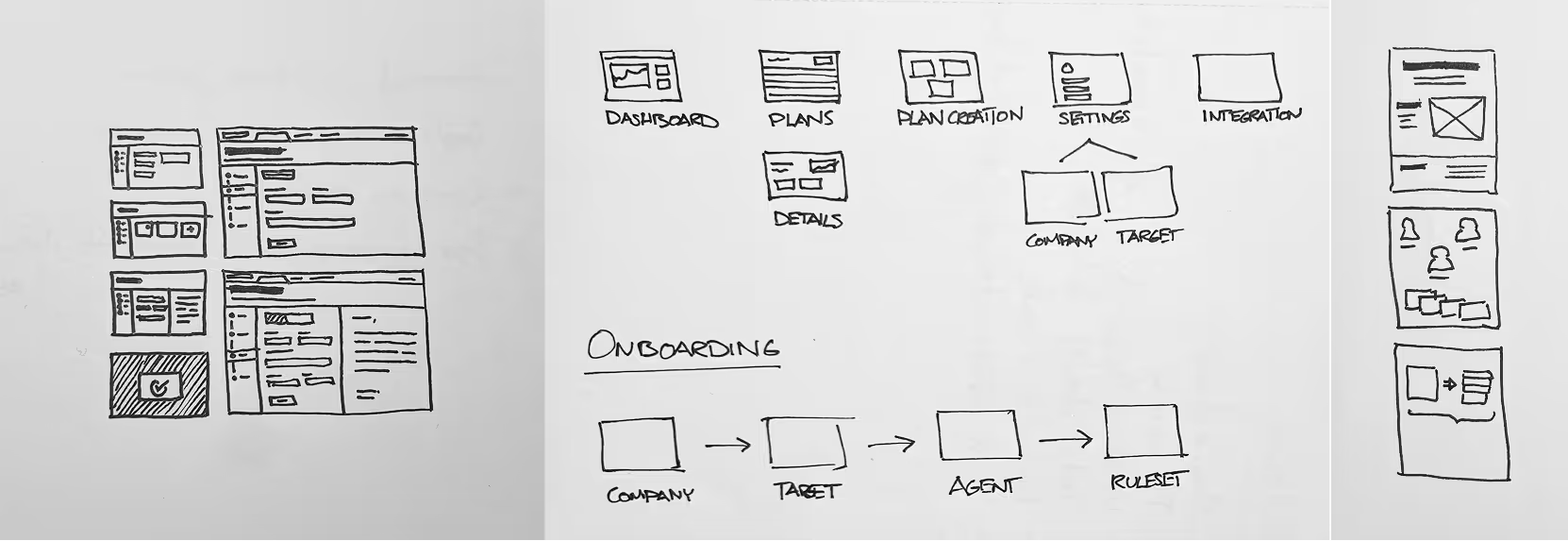
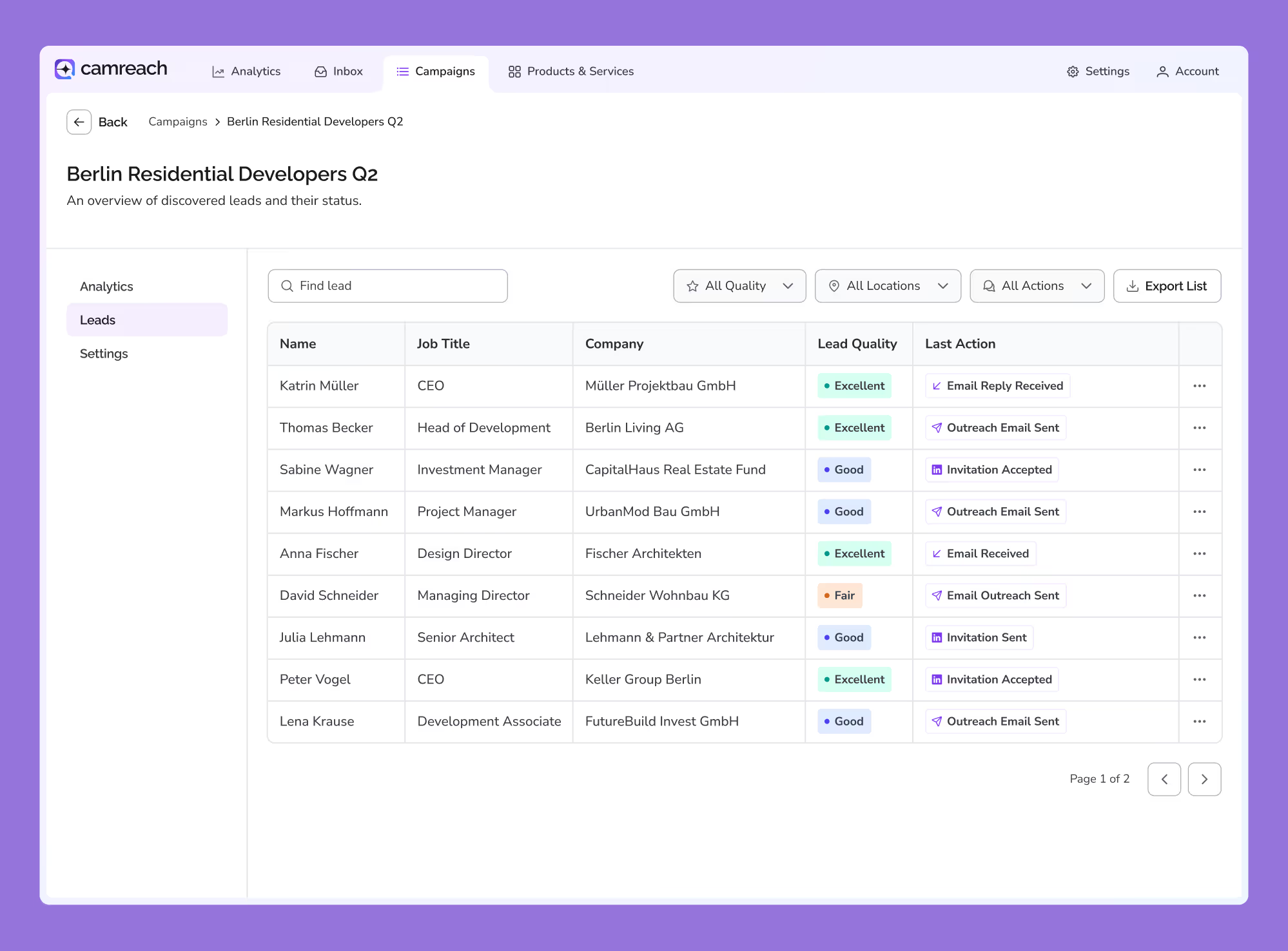
Sales campaign creation
The objective was to make this process as simple, concise, and clear as possible. The process is split into sections, visible in a progress bar.
Custom parameters
In the background, custom parameters and data have already been fed into the system. The user only has to modify campaign specific details.
Macro user flow - campaign creation
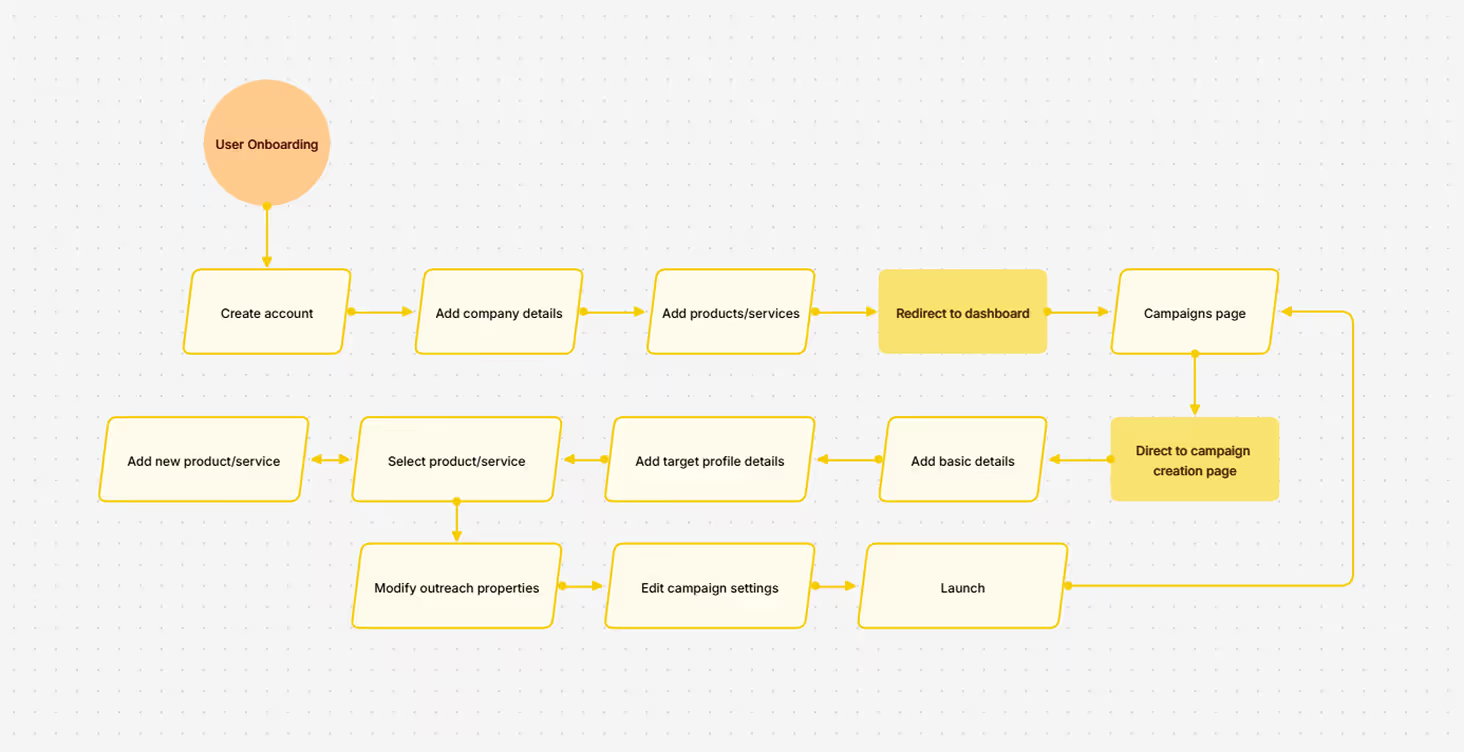
1. Target profile details
The user enters important details for prospecting.

2. Add products/services
Select an existing product/service or add a new one. This will be used for outreach.
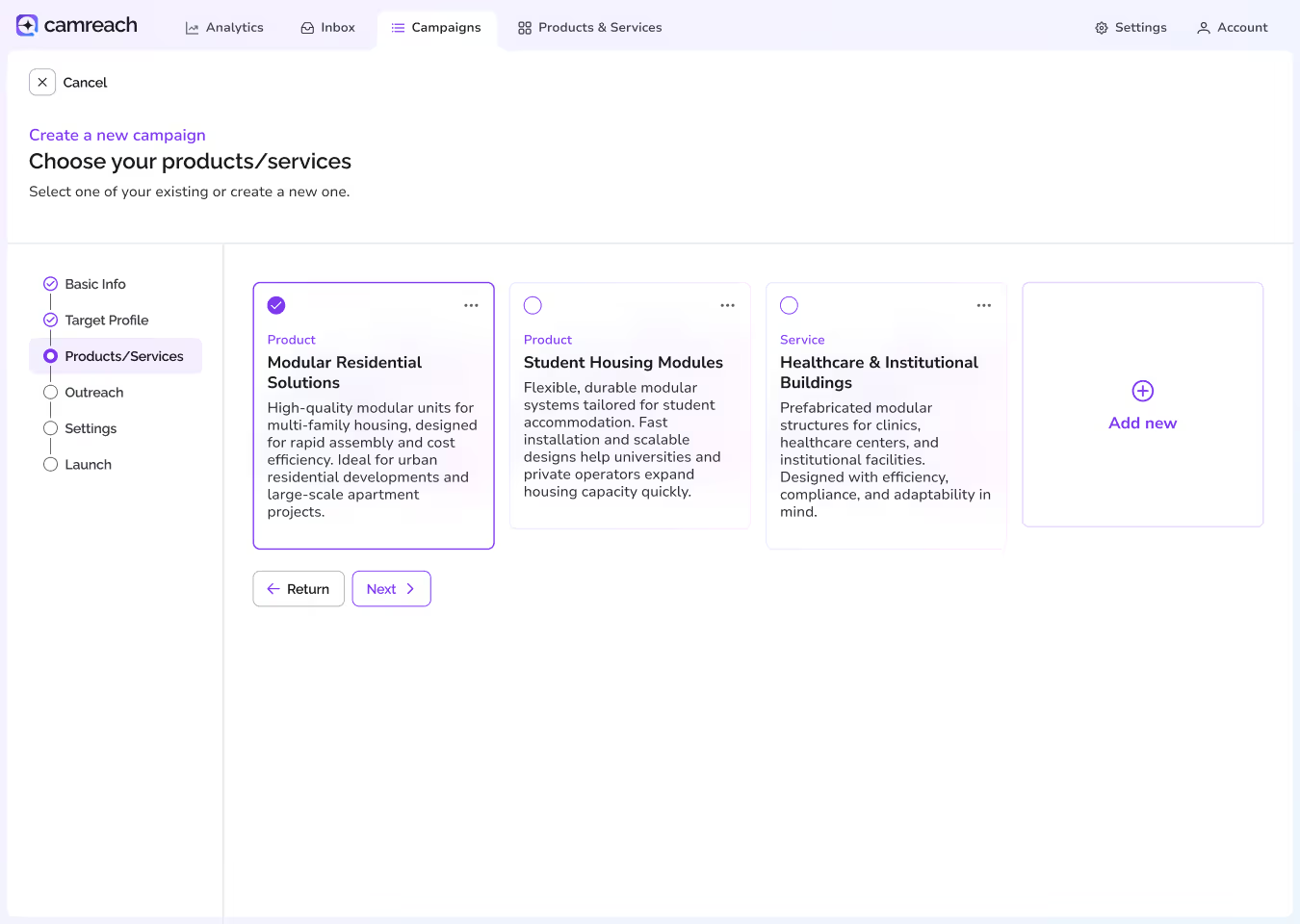
3. Outreach properties
Tell the platform how to engage with prospects. View changes in a live preview message.
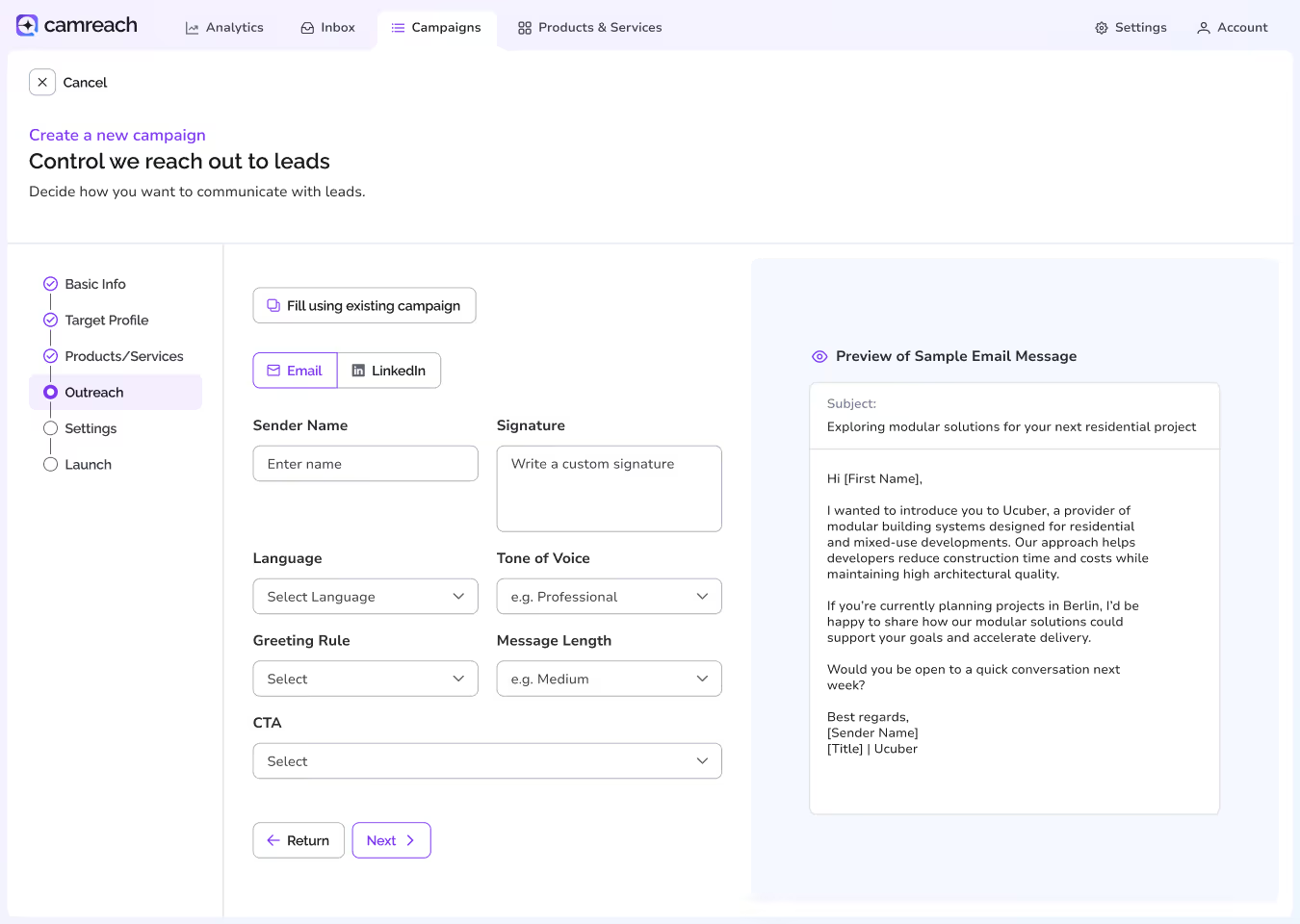
4. Campaign Settings
Finally, adjust campaign specific settings.
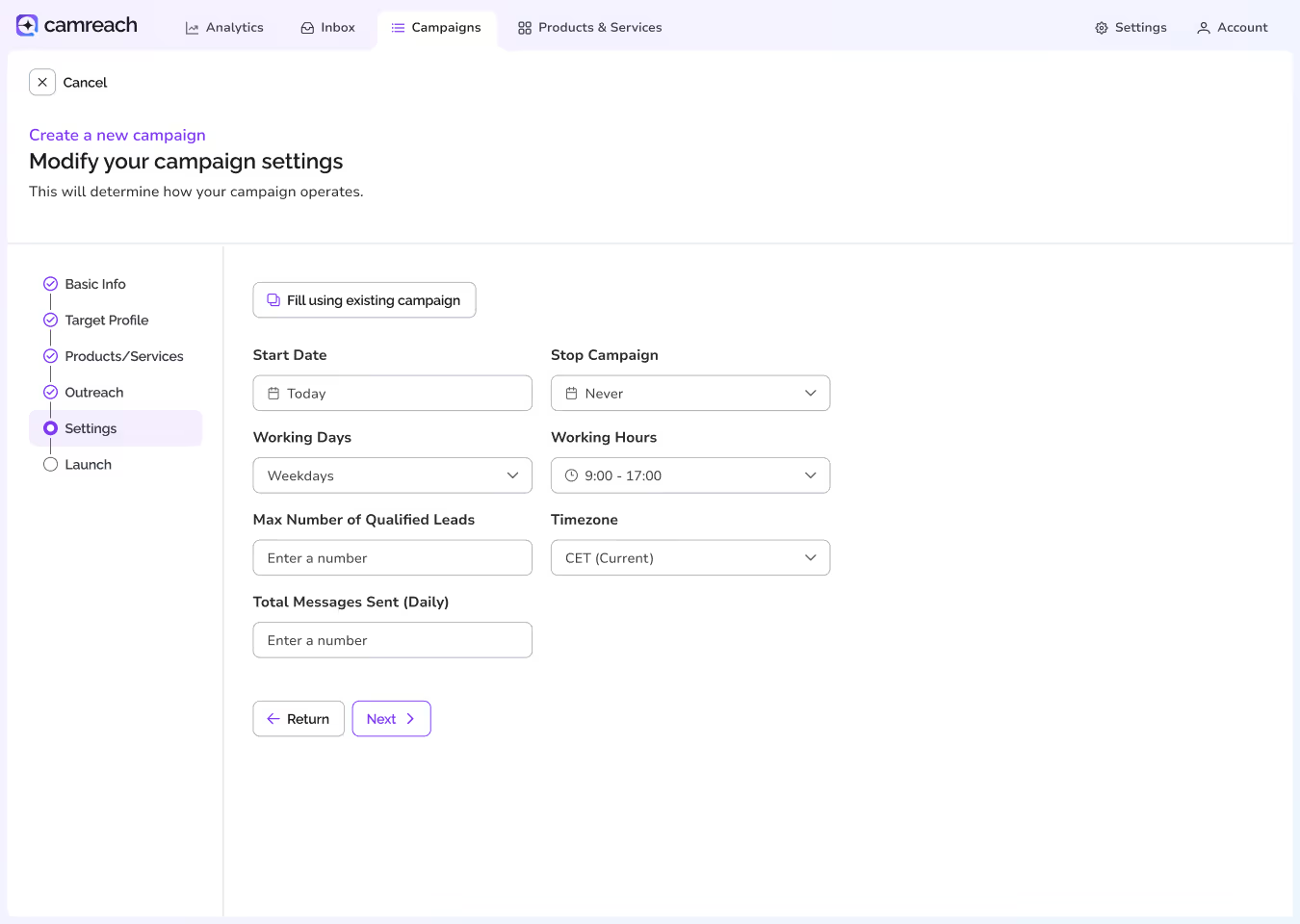

Results
CamReach is at the end of development with only the front-end remaining. We are in talks with investors at the moment and expect to secure funding by Jan 2026. After this, we will begin testing the product with real users and gather data to further improve the UX/UI.
Reflection
This project taught me how to simplify a complex, AI-driven system into a clear and approachable user experience. Close collaboration with stakeholders helped turn a vague concept into a focused MVP, and I learned how to balance ambitious features with practical constraints while keeping the experience intuitive for small businesses.




